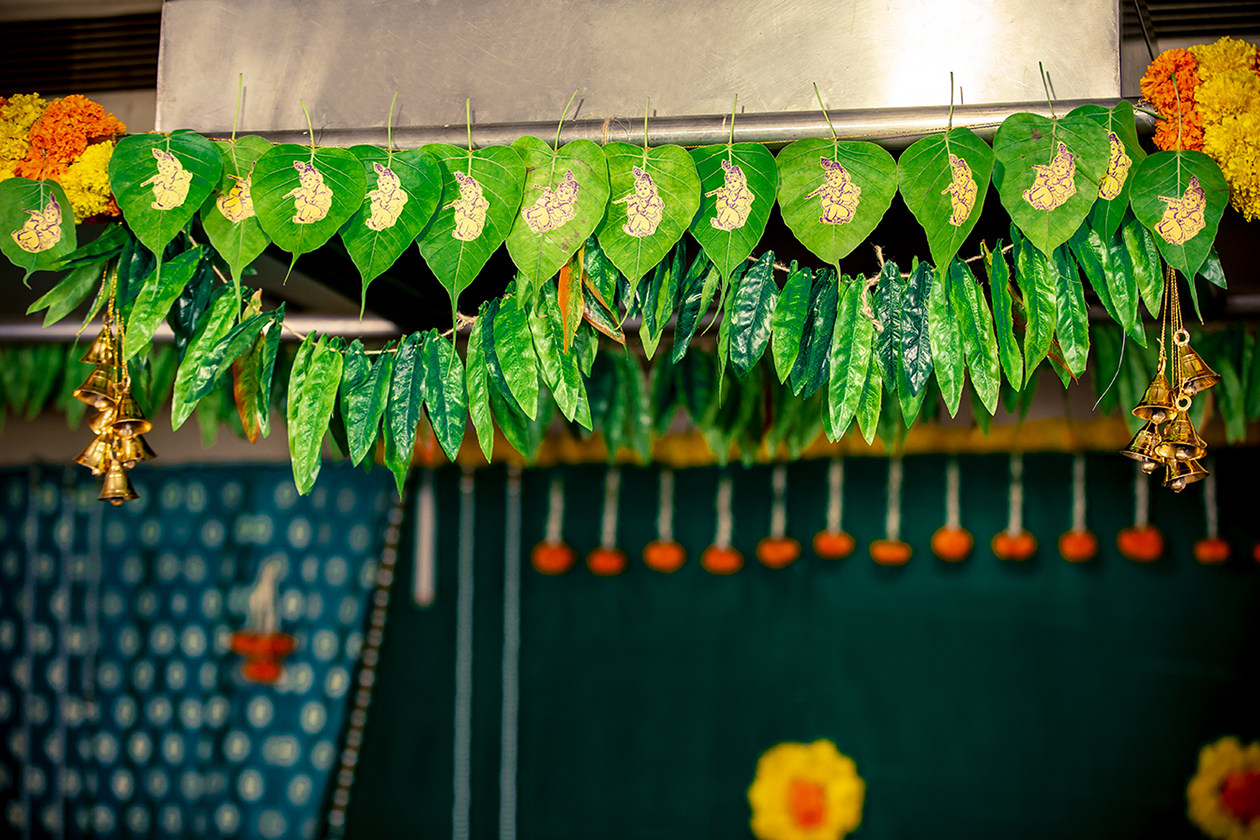
In Indian tradition and culture, mango leaves hold significant symbolism and are utilised in various rituals and ceremonies. Here are some of the symbolic meanings associated with mango leaves:
Auspiciousness:
Mango leaves are considered highly auspicious in Hindu culture. They are often used to decorate entrances, doors, and thresholds during festivals, weddings, and other auspicious occasions. The belief is that mango leaves bring positive energy and prosperity into the household.
Symbol of fertility and abundance:
The mango tree is known for its lush foliage and abundant fruit-bearing capacity. Thus, mango leaves symbolise fertility, growth, and abundance. In weddings and other ceremonies, mango leaves are used to signify the prosperity and fertility of the newlyweds.
Purity and cleansing:
Mango leaves are believed to possess purifying properties. They are used in various purification rituals where negative energies are removed, and positive vibrations are invited. For instance, during Griha Pravesh (housewarming) ceremonies, mango leaves are tied to the door frame to purify the home and ward off evil.
Connection with Hindu mythology:
In Hindu mythology, the mango tree is often associated with deities like Lakshmi, the goddess of wealth, Saraswati, the goddess of knowledge, and Kamadeva, the god of love. Mango leaves are considered sacred and are offered to these deities during prayers and rituals.
Protection from evil:
Mango leaves are believed to possess protective qualities. In some regions, they are hung outside homes and temples to ward off evil spirits, negative influences, and diseases. It is also believed that mango leaves possess antibacterial properties, adding to their protective symbolism.
Symbol of eternal love:
In some Indian traditions, mango leaves are used in wedding ceremonies to symbolise the eternal bond between the bride and groom. The belief is that like the evergreen mango tree, their love will remain strong, resilient, and everlasting.
Overall, mango leaves hold deep cultural and symbolic significance in Indian tradition, representing auspiciousness, prosperity, purity, protection, and the eternal cycle of life. Their use in rituals and ceremonies underscores their importance in connecting individuals with their cultural heritage and spiritual beliefs.








Leave a comments